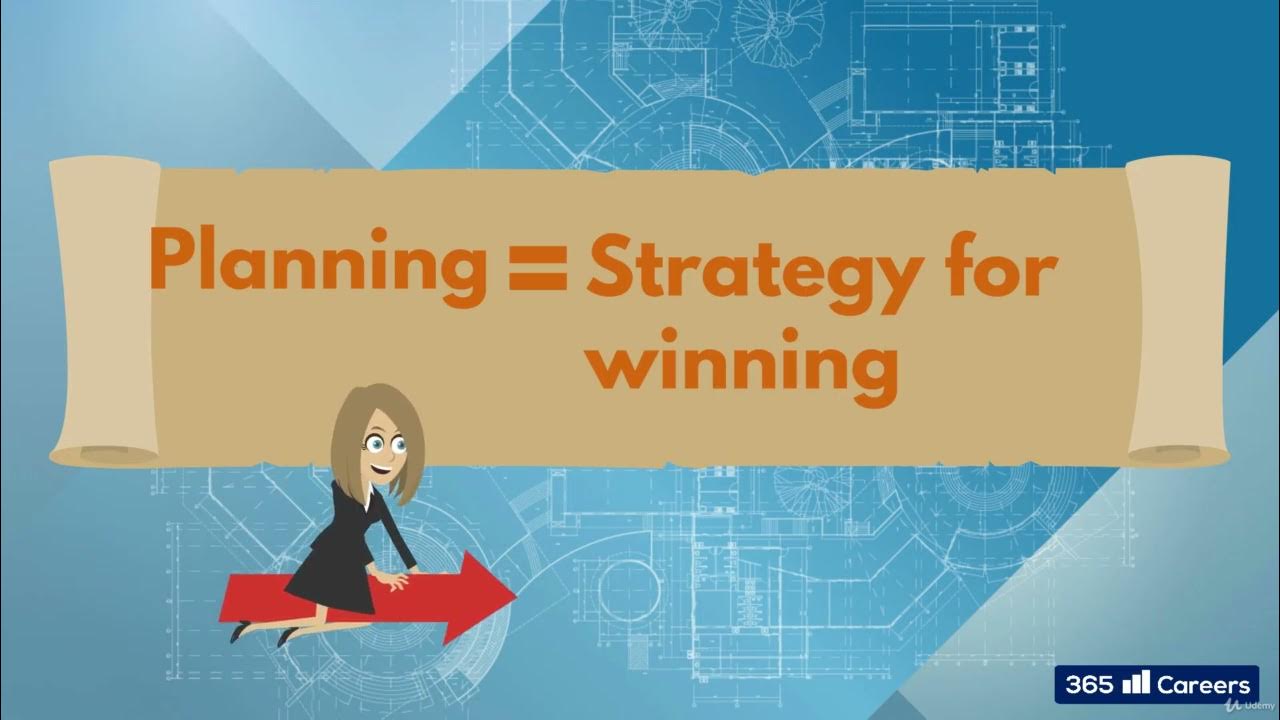5 Tahapan Manajemen Proyek || 5 Siklus Hidup Proyek - Project Life Cycles Phases of The Project
Summary
TLDRThis video provides an overview of the five key phases of project management according to PMI: Initiation, Planning, Execution, Monitoring and Controlling, and Closing. It emphasizes the importance of defining project goals, creating detailed plans, and ensuring effective communication with stakeholders. The project manager is responsible for leading the team, managing risks, and ensuring the project stays on track, while also being prepared for any necessary adjustments. The video highlights the need for strong leadership, organization, and risk management skills to successfully complete a project and meet its objectives.
Takeaways
- 😀 Initiation is the first phase of project management, focusing on defining the project's objectives, scope, and identifying potential risks.
- 😀 A clear and realistic project goal is essential in the initiation phase to ensure alignment with overall project objectives.
- 😀 The project manager (PM) plays a vital role in the initiation phase, including selecting the team and estimating resources and timelines.
- 😀 Planning involves detailing the entire project, including resource allocation, vendor selection, budgeting, and creating a more precise timeline.
- 😀 Stakeholder communication is a key component of the planning phase, as it ensures alignment and addresses any risks that could arise.
- 😀 Execution is the phase where the actual project work is carried out, and the PM ensures that tasks are performed according to plan.
- 😀 Effective leadership and communication are crucial during the execution phase to maintain team coordination and keep the project on track.
- 😀 Monitoring and controlling track the project's progress, ensuring it stays within scope, budget, and timeline. Adjustments are made when necessary.
- 😀 Risk mitigation is an essential part of monitoring and controlling to handle unexpected issues or changes in the project.
- 😀 Closing involves completing the project, finalizing contracts, archiving documents, and resolving any remaining issues to ensure a successful conclusion.
- 😀 A successful project manager must possess leadership, organizational, and communication skills to effectively lead and guide the project through all its stages.
Q & A
What are the five phases of project management according to PMI?
-The five phases of project management according to PMI are: Initiation, Planning, Execution, Monitoring & Controlling, and Closing.
What is the primary goal of the Initiation phase?
-The primary goal of the Initiation phase is to define the project’s objectives, scope, identify the project manager, assess potential risks, and outline the project’s budget and timeline.
Why is selecting the right project manager crucial in the Initiation phase?
-Selecting the right project manager is crucial because they will be responsible for overseeing the entire project, managing resources, and ensuring the project aligns with its goals and objectives.
What are the main tasks during the Planning phase?
-During the Planning phase, the project manager must create a detailed project plan, including resource allocation, budgeting, vendor selection, creating a timeline, and planning stakeholder communication and risk management strategies.
How does the Execution phase differ from the Planning phase?
-The Execution phase differs from the Planning phase in that it focuses on carrying out the plans made during the Planning phase. It involves implementing tasks, managing resources, ensuring the project stays on track, and addressing any issues that arise during the process.
What is the role of the project manager during the Execution phase?
-During the Execution phase, the project manager is responsible for ensuring that the project progresses according to the established timeline and budget. This includes managing the team, overseeing external contracts, and maintaining communication with stakeholders.
Why is Monitoring and Controlling important in project management?
-Monitoring and Controlling is important because it ensures the project is progressing as planned. It allows the project manager to measure progress, identify deviations from the plan, and take corrective actions to mitigate risks and keep the project on track.
What does the project manager monitor during the Monitoring and Controlling phase?
-The project manager monitors the project's progress, performance, risks, and any deviations from the original plan. They also track timelines, budgets, and overall project quality to ensure alignment with the project goals.
What happens during the Closing phase of a project?
-During the Closing phase, the project manager ensures that all project deliverables have been completed and approved by stakeholders. Contracts with external vendors are finalized, project documents are archived, and a final project report is created.
Why is effective communication crucial throughout the project management process?
-Effective communication is crucial because it helps keep stakeholders informed, ensures alignment with project goals, fosters collaboration among team members, and allows the project manager to address issues quickly before they affect the project’s outcome.
Outlines

This section is available to paid users only. Please upgrade to access this part.
Upgrade NowMindmap

This section is available to paid users only. Please upgrade to access this part.
Upgrade NowKeywords

This section is available to paid users only. Please upgrade to access this part.
Upgrade NowHighlights

This section is available to paid users only. Please upgrade to access this part.
Upgrade NowTranscripts

This section is available to paid users only. Please upgrade to access this part.
Upgrade NowBrowse More Related Video

What is Project Management? | Explained in 10 Minutes

010 How does a project start and how does it evolve What a project's main stages

Project Management Basics [QUICK GUIDE]

Waterfall Project Management Explained | All You Need To Know (in 5 mins!)

What is Project Management? | Introduction to Project Management - Zoho Projects

Siklus Hidup Proyek - Manajemen Proyek TI
5.0 / 5 (0 votes)